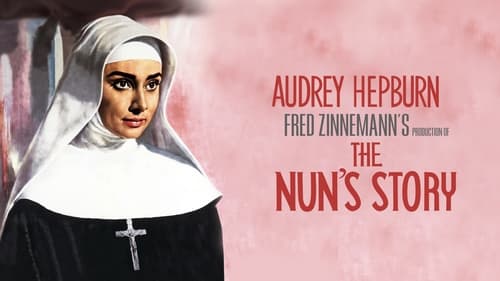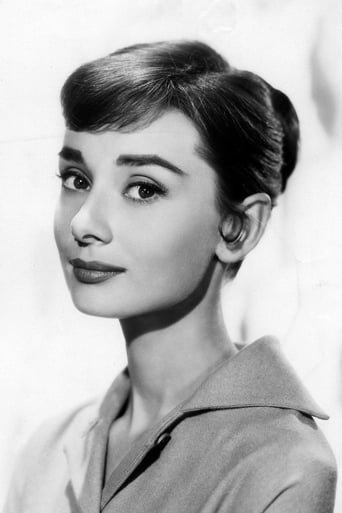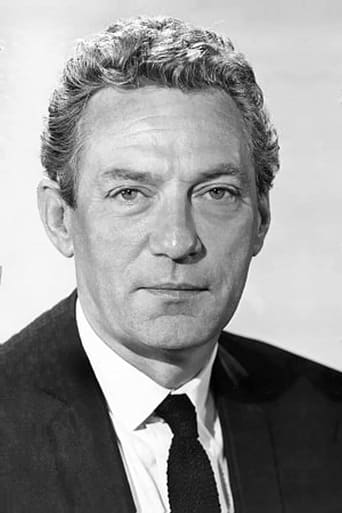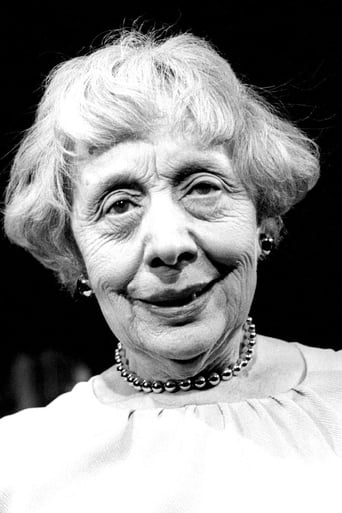Vonia
The Nun's Story (1959) I was most awed by this underrated, superbly well done film. Not that I am surprised by the mixed reviews. Watching the final scene, all I could say was, "Thank God." I was becoming increasingly frustrated watching all the Mothers guilt tripping and manipulating her into staying so they could utilize her medical expertise when it was clear that she wanted to leave; that her struggles to "obey" from day one proved she did not have a personality naturally fit for a nun. That frustration was replaced by sadness when she finally removed her habit and saw how old she had become. I have no doubt that this was not from age but from the mental toll of having to struggle daily with her desire to be the best nurse she could be and to provide get patients with the best care she could against what she thought was a desire to love and stay true to God. This would be better categorized as a dramatized documentary. It is based on a biography, after all. As with all documentaries, unless you are significantly interested in the topic, it might not be your viewing pleasure. I do feel that the best filmmakers can make any topic interesting, as evidenced by the fact that I am not a religious person in the least. Audrey's performance drew me in, though. And unlike most one-man or one-woman shows, other characters were still engaging. Not being a religious person or highly interested in it, I was not completely wowed by this film. But was I or has I been, this could easily be in my favorites inventory. This should be watched for Audrey's performance alone, but also for its educative value of the process of becoming and living as a nun and the little everyday details involved in, well, A Nun's Story!
#FilmReview
ma-cortes
Enjoyable as well colorful picture about a dedicated religious nurse who attempts to cure troubled people in the Belgian Congo . The melancholy tale from the Kathryn Hulme book dealing with a young missionary working as a nurse during WWII and based on the novel of the same name, that told the story of the real-life "Sister Luke," Marie-Louise Habets . Gabriella (enticing Audrey Hepburn ,the character was suggested for Ingrid Bergman but Bergman herself said she was too old for the role and instead proposed Audrey) is the daughter of an important doctor (Dean Jagger) who leaves the convent as Sister Luke . The movie has opening credits play out over street scenes of Bruges , at over 1,500 years old , one of the oldest cities in Belgium, and at one time, the most important commercial city in the world . In 1939, while the Nazi regime subjugates European Nations Graciella travels to the Belgian Congo , her assignment in the Congo is at a European hospital under the atheist eye of a doctor called Fortunai (Peter Finch). Slowly , Gabriella or Sister Luke heals ills , helps injured villagers and usually prays . But the Nazis rise to power and invade her homeland . Then , she returns Belgium , there questions her religious vocation and her moralizing comes back to haunt her .Director Fred Zinneman struck a correct balance of fine pace and sensitivity in the mesmerizing tale of a young Belgian girl who becomes a religious missionary and is sent to the Belgian Congo to work at a hospital . Finely starred by a luminous Audrey Hepburn as a dedicated nun who subsequently comes to question her vocation , as she is struggling to reconcile her free spirit and philanthropic wishes with the religious rigors ; Hepburn chalked up another hit in this long but always interesting flick based on Kathryn Hulme's novel , being rightly adapted by screenwriter Robert Anderson . Spectacular settings and well staged scenes , in fact , members of the Rome Opera ballet corps were hired to play some of the nuns, and complex convent rituals were literally choreographed for them . This agreeable flick packs an exciting screenplay , thought-provoking drama , fine interpretations and intelligent filmmaking . It's surprising that the movie didn't achieve any of the six Academy Award for which it was nominated ; however , it won NY Film Critics to best actress and director and British Academy gave prizes to best actress and support cast . Casting is frankly well . Good acting by Audrey Hepburn as a beautiful missionary nurse who gains the trust of the locals , not only providing medical care but dealing with African people ; this was one of Audrey Hepburn's favorite of her films and it was also one of her most financially successful . Excellent Peter Finch as a good surgeon , he doesn't quite hit it off with Gabriella at first but soon starts to develop deep affections for her . Furthermore , a nice support cast formed by notorious secondaries such as Edith Evans , Peggy Ashcroft , Dean Jagger ,Beatrice Straight ,Rosalie Crutchley , Ruth White , Barbara O'Neil , Lionel Jeffries , Colleen Dewhurst and Niall MacGinnis , among others . ¨Nun's story¨ consolidated a sub-genre about nuns or religious people in far countries , going on ¨Heaven knows , Mr Allison¨ by John Huston with Robert Mitchum Deborah Kerr , ¨The Sins of Rachel Cade¨ also produced by Henry Blanke and directed by Gordon Douglas with Angie Dickinson , Roger Moore and Peter Finch , too , and ¨A Nun at the Crossroads¨ with Rosanna Schiaffino and John Richardson , among others. Appropriate as well as sensitive musical score by the classic Franz Waxman . Glamorous and evocative cinematography by Franz Planer , though mostly filmed on real African exteriors , in fact , the film was shot on location in Rome, Bruges, Stanleyville and a real leper colony in the Congo . The motion picture well produced by Henry Blanke was stunningly directed by Fred Zinneman. This is one of various and pleasant works , some major and minor successes of his long career as a filmmaker . He was a Hollywood veteran director, directing early movies and a long career until the 80s . With ¨The nun's story¨ Zinnemann chalked another major hit in this overlong but always absorbing tale . After acquiring the rights to Kathryn Hulme's bestselling novel, Fred Zinnemann found that no one in Hollywood had any enthusiasm towards turning it into a film, citing it as being devoid of action , but all that changed when Audrey Hepburn expressed a desire to take the lead role . Rating : 8 , Above average , well worth seeing .
writers_reign
I'm giving this eight out of ten for Audrey Hepburn who is note perfect as a young woman struggling with her desire to be a nun yet human enough to be fully unable to conquer her vanity, pride, and question the God who demands she suppresses these traits. At the time it was made (shortly after Kathryn Hume published her autobiographical account of her years as a nun) there was no one who could have come within a mile of capturing all the facets of Gabrielle as well as Hepburn or, indeed, could express so many emotions using just her eyes. This isn't to say the support was chopped liver; two Dames were on hand playing sympathetic Mother Superiors - Edith Evans in Belgium, Peggy Ashcroft in the Congo - with the likes of Beatrice Straight and Colleen Dewhirst weighing in with fine cameos and Peter Finch and Dean Jagger well up to snuff as the atheist surgeon in the Congo and the renowned Belgian surgeon who is also Gabrielle's father, respectively. Yet another feather in Hepburn's cap.
jlgAltman
It's wonderful to catch up with classic films that may have lost of their buzz over time. THE NUN'S STORY is a truly perfect work but not one that is mentioned in the same breath as other classic films from great directors like Fred Zinneman and star Audrey Hepburn. This sublime film is subtle to the extreme. Almost flat in fact, depicting the inner struggle of a nun who wishes nothing more than to be a citizen of the world, something the convent does not allow. THE NUN'S STORY takes its time. There is no emotion. No evil. No greatness. Just the struggle to define one self and become the person you must be. Simply stunning, subtle, and perfect!






